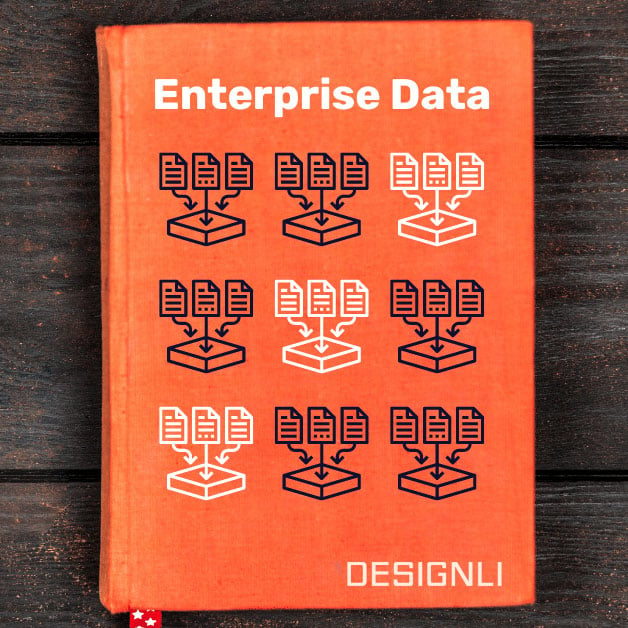Is Custom Software Development Right For Your Business?
Custom software development is analogous to choosing your wedding outfit. You can buy it off the rack and wear it as it or choose to take the extra...
6 min read
Written by Laura MacPherson, May 12, 2023

Custom software takes significant time and investment to build and deploy, so you don’t want to make a rash decision. Forbes reports that the annual global spending for enterprise software alone exceeds $570 million. Some of this is money well spent, but how do you know if your custom software project will be worth it?
You need confidence that you’re building the right solution for your needs and hiring the right developers and designers to create a product you’ll be happy with. Before you get too far along in the process of buying custom software, be sure to ask these 10 questions.
Don’t get stuck on the “nice to have” features. Different departments might love slightly different functionality, but you can grow into those niche features over time. For now, it’s best to focus on the absolute “must-have” priorities. How can you condense your entire app idea into an elevator pitch, a summary, or even a single sentence?
Describing your app as briefly as possible helps you focus on the root of the issue. Don’t focus on how people will use the app just yet. At this stage, it’s more important to say why people will use your app. Focusing on the why behind the what gets you to the essence of your software solution.
To answer this question, consider the issues and inefficiencies that create a need for your software. Next, analyze the business impact of each. Assign a dollar value to each problem solved if you can, even if it’s only a rough estimate. The problems and solutions with the highest values are your priorities.
Additionally, think carefully through each item on your list to make sure they aren’t merely symptoms of a deeper problem. If there is a deeper problem, what’s the dollar value of that problem? By identifying and addressing root issues, you’ll develop a lasting solution rather than creating a Band-Aid.
Learn more: What is Custom Software Development, and Is It Right for Your Business?
It’s easier to produce a profitable app when you know who you’re creating it for. This is a good time to start building user personas if you don’t already have them. Once you have your personas, you can map out the user journey. That is, how will users move through your custom website or mobile app to receive the intended benefit?
This understanding of your users and their experience of your product allows you to create user stories. Capturing the information as user stories gets you started on the road to development, saving time and money later in the design phase. An intimate understanding of your users helps you deliver the most possible value to them. When you help your personas achieve their objectives as simply and effortlessly as possible, you’ve created a satisfying user experience.
Ah, the budget question. Too often, budget is determined haphazardly, based on what’s available or left over in the IT budget. But if you don’t calculate the value of the software, you may be earmarking too much or too little.
Based on the dollar amounts you assigned to business problems in your answer to the first question, what’s the value of solving the priority items on your list? This figure will inform how much you should budget for your custom software.
Related questions include the following:
Once you’ve decided how much budget to allocate, you can start deciding which features are worth including when you build the minimum viable product (MVP).
The best web apps and mobile apps aren’t built all at once. That means you’ll normally have to refine your focus at first. For example, will it ruin your app if the first version doesn’t allow users to sign in with social media or Google?
Asking questions like this will help you filter your 1,000,000 ideas until you find what’s truly essential. At this stage, you’re using your answers from other questions to do some cost-benefit analysis:
The work you’ve done so far helps you identify the high-impact features that are critical to the essence of your app. Focusing on the user’s true benefits instead of specific features also helps you avoid functional fixedness.
This is the way to make the most of every dollar in your budget and launch a product that solves pressing problems for your initial users. If you succeed at this step, you’re able to monetize your app. In turn, your financial success gives you money to reinvest in future feature development.
Your app should be starting to take shape at this point. You know who will use it, why they’ll benefit from your product, and how the different features support the essence of your app. Now you can decide on a business model.
That is, how will build the business side of your startup, or use your enterprise app to turn a profit? You have a startup, you can sell monthly subscriptions, offer in-app purchases, or generate revenue with in-app ads. An enterprise app can benefit the bottom line if it attracts new clients or prevents existing users from churning.
Many software developers can build high-quality products that will do what they’re intended to do. But a development company with experience solving business problems can bring an invaluable perspective to the table. You thoroughly understand your business and the problems you face, but you may not fully understand all the ways technology will or could impact your situation. An experienced development company can help you consider factors that will result in a software product that generates even more value for your business, with an easy-to-use design that your people will be eager to adopt.
Learn more: Build vs. Buy: Which Option is Best For Your Business
“Data is the new oil.” That’s what data scientist, mathematician, and entrepreneur Clive Humby realized all the way back in 2006. Indeed, data is one of the most valuable assets a business can own. Like oil, it can also be extremely dangerous if you don’t know how to handle it.
Businesses in some industries, like healthcare and finance, are especially likely to encounter sensitive data. However, most modern businesses encounter personally identifiable information (PII) of some sort. The U.S. Department of Labor offers a full definition of PII, which includes information as simple as a customer’s name, phone number, or email address.
Are you up to date with the best practices for security, privacy, and data protection? How about the latest data compliance regulations? Which of the many different regulations will apply to your specific application? There are several ways to build a secure app, and the easiest is often to choose a trusted partner who knows how to handle the “new oil” without starting a fire.
Ongoing expenses are an important consideration when you think about how much it will cost to build your app. Businesses that build truly great applications do so by investing in them over time. Does your software development company offer support and maintenance services to help you iterate post-launch? An experienced team with an iterative approach to design should be able to give you a ballpark estimate upfront so there are no surprises later.
Managing deadlines can be stressful, but this is part of almost every software project. When you have a startup idea, you’re racing to get to market before someone else. When you build an enterprise app, you have to contend with internal deadlines as well as market pressures.
There are five primary factors that influence how long it takes to create an app. Can you clarify your vision and prepare a thorough plan to avoid setbacks? If challenges do arise, will your development company be able to avoid lengthy delays? These questions are easier to answer when you rely on a tried-and-true approach.
Process can make or break the project. You need a development company with a clearly-defined strategic process that’s based on their experience working with other organizations like yours. This process should follow a roadmap that everyone understands and can refer to throughout the project.
This process should include:
The answer to these questions will ensure nail down the essential considerations before you start development. While doing this research takes time, it will save you significant time in the long run since you’ll be building precisely what you need.
Want to talk through ideas for your new enterprise software solution or learn more about our SolutionLab process? Get in touch.
Subscribe to our newsletter.

Custom software development is analogous to choosing your wedding outfit. You can buy it off the rack and wear it as it or choose to take the extra...

When it comes to enterprise technology, a set-it-and-forget-it approach won’t cut it. Staying current in the digital age requires action. You can’t...

Imagine driving at night with no headlights. That’s a bit what making business decisions would feel like with no data. Assumptions make a poor guide....